Let’s talk about weed: How medicinal cannabis might help
MEDICAL cannabis has the green light to rollout in Australia. But there’s confusion about who can access it and inconsistency in its regulation in each state.

Illness
Don't miss out on the headlines from Illness. Followed categories will be added to My News.
FOR Rozanne Burley, medicinal cannabis was a saviour for her 16-year-old son Adam.
The single mum of three has endured the unimaginable with her youngest boy, who has Dravet syndrome. At his worst, he was having up to 20 seizures a night and has been left with severe brain damage as result of continued seizures from the age of eight months.
Rozanne started Adam on medicinal cannabis at age 12 after strong anti-convulsion medications left him with side effects so bad he had to be fed through a tube in his stomach for five years.
Desperate to relieve her son’s suffering, Rozanne turned to the black market to access the medicalised version of the illicit drug to try and reduce Adam’s treatment burden.
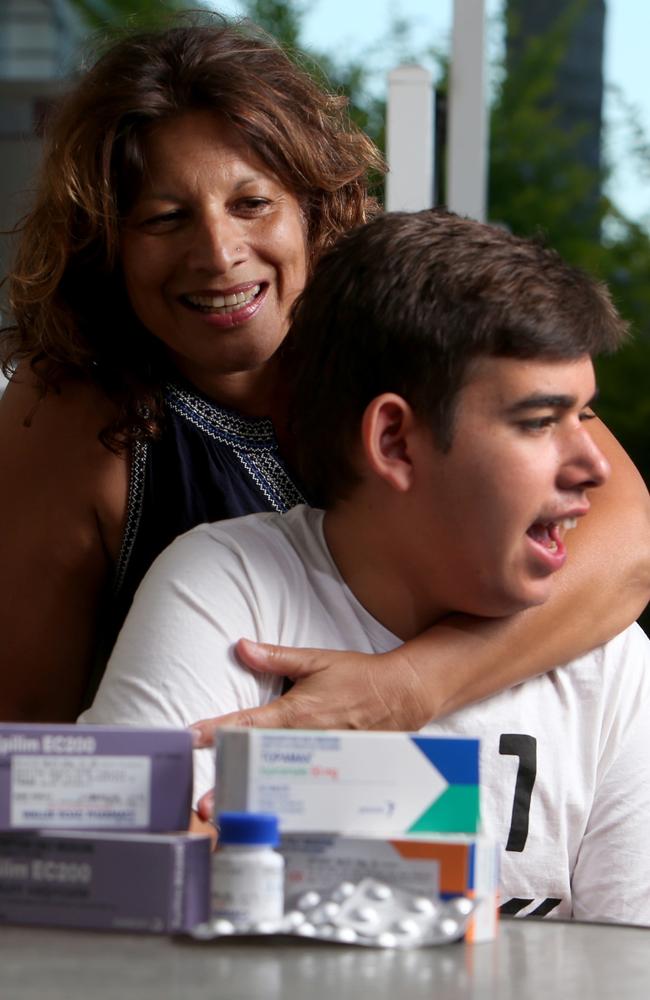
“He would have a few drops of the (cannabis) oil in the morning and the afternoon and evening,” Rozanne told News Corp Australia.
“His seizures reduced and he was generally much happier and healthier.”
But when Adam had to go to hospital for a fractured hip just a few short months after starting medicinal cannabis Rozanne “made the mistake” of telling a nurse in hospital that she had turned to the drug for her son’s treatment.
“I just wanted to get him off all the medication and I researched medicinal cannabis and saw that it could have a major impact for people with his condition,” Rozanne said.
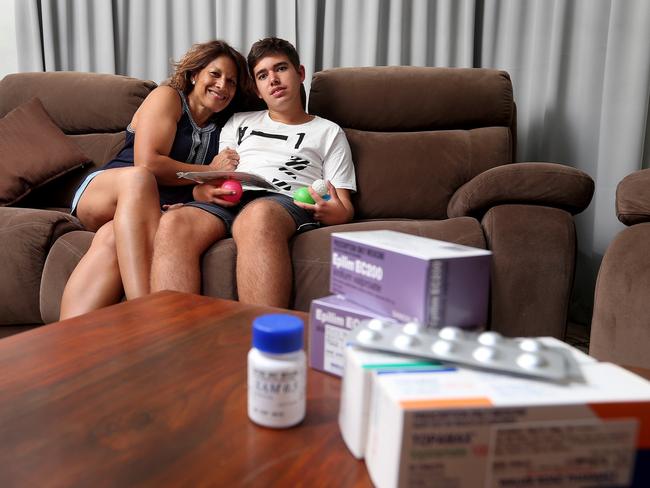
“The nurse told our neurologist what we were doing and she said she had to report me to the police for giving Adam cannabis.”
Shortly after, Rozanne received a visit from two detectives sent to her house on behalf of child services.
“They didn’t know anything about Adam’s condition. They just thought I was a mother giving my near-teenage son cannabis,” she said.
“They tried to question Adam but he’d just only had a couple of seizures and when he came out and was drooling and not very responsive they were a bit shocked and said ‘what’s wrong with your son’.”
Rozanne said once she explained Adam’s condition and treatment burden the officers were apologetic but issued a warning to “just be careful because others may not be so understanding next time”.
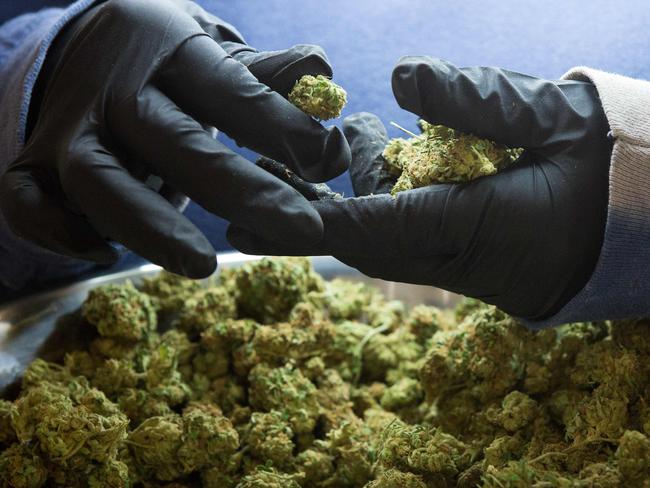
“It really genuinely scared me. I’m a single parent; I can’t go to jail and not be here for Adam.
“My aim is to take him off all the (anti-convulsion) drugs. I feel like I am poisoning him. But I can’t lose him.”
Since then, Rozanne says she’s been too afraid to give Adam medicinal cannabis, even though she knows it will help improve his quality of life dramatically.
The Burley’s story is not unique, with thousands of suffering Australians desperately wanting access to medicinal cannabis to help relieve their ailments and treatment burden.
Last November the federal government legislated to make cannabis use legal, but highly regulated, and last week federal Health Minister Greg Hunt gave the green-light for Australian companies to import cannabis oils and tablets to build up a national inventory prior to locally-grown crops coming online.
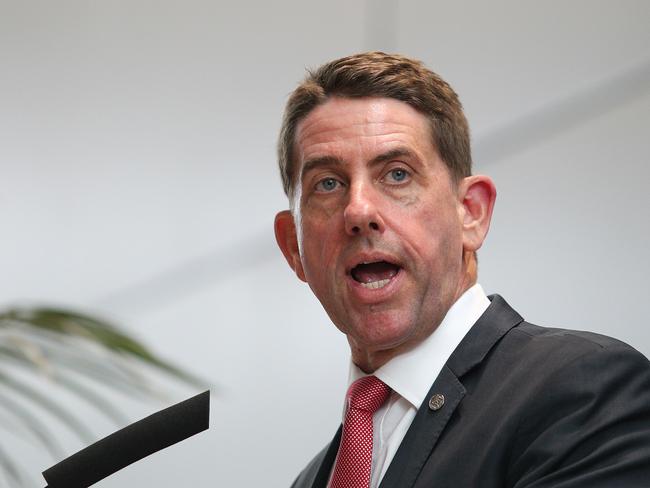
Patients can now visit a GP and talk about cannabis use with their doctor without the fear of being visited by police. However there are still massive hoops to jump through to access the drug, including confusing and differing state-based laws.
In Queensland new regulations surrounding the sector will be put in place from this week (March 1), with access determined on a case-by-case basis regardless of condition or age.
In Victoria, medicinal cannabis use is only permitted for childhood epilepsy sufferers.
In NSW it is for compassionate reasons for end-of-life illnesses only.
Medicinal cannabis use is also permitted in WA on a case-by-case basis.
However for South Australia, the Northern Territory, Tasmania and the ACT there appears to be no clear guidelines or easily accessed rules so patients and doctors are often left wondering who they can prescribe to.
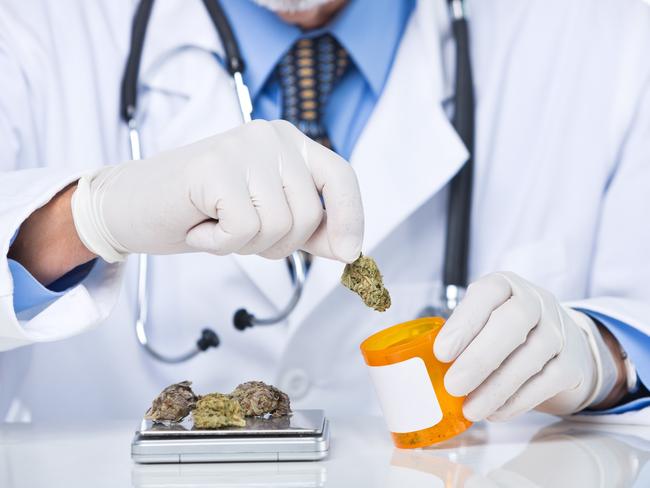
Doctors either have to be “authorised prescribers” approved by the Therapeutic Goods Administration before allowing their patients access to medicinal cannabis or simply seek approval from the TGA for each individual patient.
Currently there are only 23 “authorised prescribers” in Australia, three in Queensland and the rest in New South Wales.
However any GP can apply to become an authorised prescriber once a patient visits them requesting medicinal cannabis.
In addition to the TGA approval process, doctors also have to be ticked off by their state health departments to authorise cannabis access.
Elaine Darby, Managing Director of AusCann an Australian medicinal cannabis company headed up by former Liberal MP Dr Mal Washer, said the system was complicated, but she praised the federal government for taking the first and biggest steps to make it easier for sick Australians to access the “life changing” medicine.
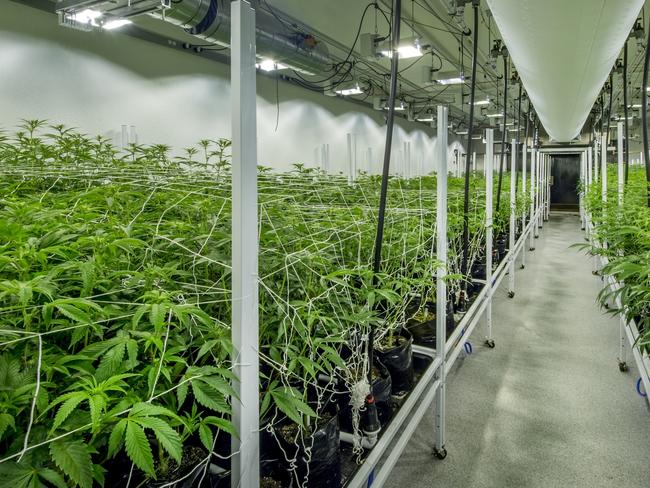
“Originally I was very sceptical about medicinal cannabis, but dad (Dr Washer) had seen it working and once I looked into the research it really is a huge game-changer,” Ms Darby said.
Ms Darby said medicinal cannabis use in Canada and the US had proven it was an effective medicine in particular for nerve pain, epilepsy and chemo-induced nausea.
She said the industry in Australia would be worth “millions” once locally grown crops became available as well as imported products.
“There are thousands of Australians that suffer from those ailments so this really is going to be a big industry,” Ms Darby said.
But Ms Darby said on the whole Australian doctors were still very reluctant to accept medicinal cannabis as a viable drug and AusCann would be flying out doctors from Canada — where the drug is prevalent — to discuss the issue in May.
And the approval process for locally grown crops was extremely cumbersome to try and prevent the drug getting into the wrong hands and unscrupulous operators taking advantage of sick patients.
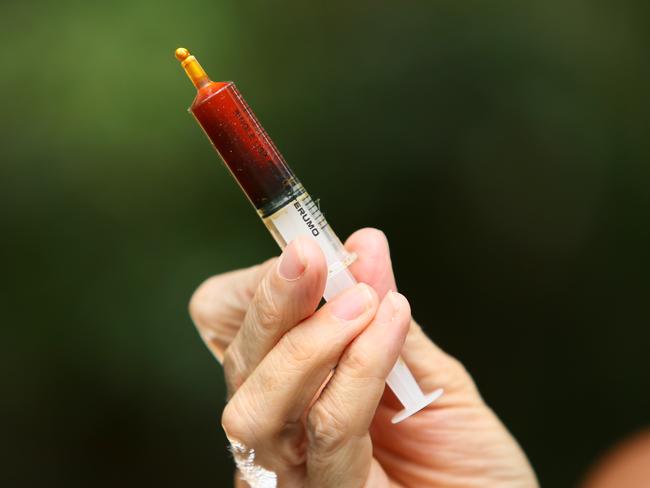
“There will be some bad eggs pop up once this industry really gets going I’m sure. There will be a few cowboys come in and flog snake oil at the end of the day,” Ms Darby said.
“But in the end they will be consumed by the bigger, above board players. Patient and doctors will just need to be wary of that.”
Ms Darby said the potential for the industry was enormous. Not just financially, but for the impact it would have in the community.
“People can have a better quality of life and work and contribute to the economy, rather than just being a burden on the system.”
“The government is very aware of the growing costs of opioids. There are lots of side effects and abuse of opioids and we can certainly assist with some of those issues and problems.”
Paul Maver, a pharmacist with Health House International, said cannabis was less addictive than coffee according to research and he had lots of people each week begging to get access to it to improve their illnesses.
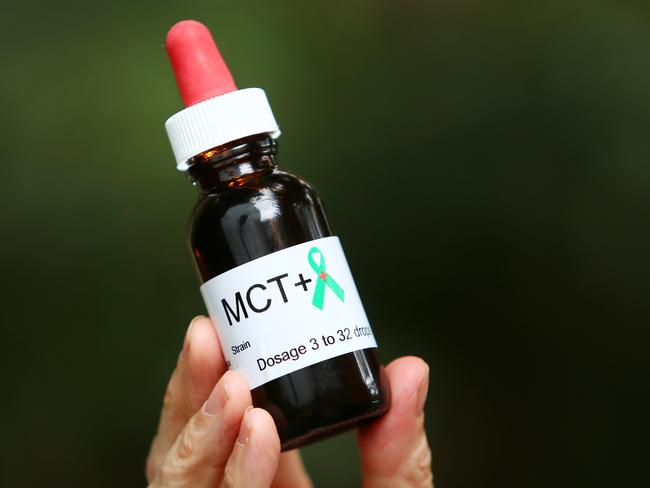
Mr Maver praised the government for bringing in changes to allow companies like his to have an inventory of medicinal cannabis, because patients were often being left with a gap in their treatment schedule while they waited for more shipments to arrive.
“I actually wrote to the TGA to say how stupid it was because it was the same freight costs if I wanted to import one bottle of cannabis oil as it was for 100,” Mr Maver said.
“Hopefully I’ll be importing our first major batch within a month.”
“Medicinal cannabis is legal in 28 of the 50 American states. It is legal in all of Canada who have a similar health system to ours.
“I started off a sceptic but cannabis is less addictive than coffee. It is also virtually impossible to overdose on.”
Health Minister Greg Hunt said the decision to prescribe a medicinal cannabis product was “first and foremost one for the doctor”.
“If a doctor does not support the use of a medicinal cannabis product, then patients should never self-prescribe and access on the black market — this is potentially extremely dangerous,” he said.
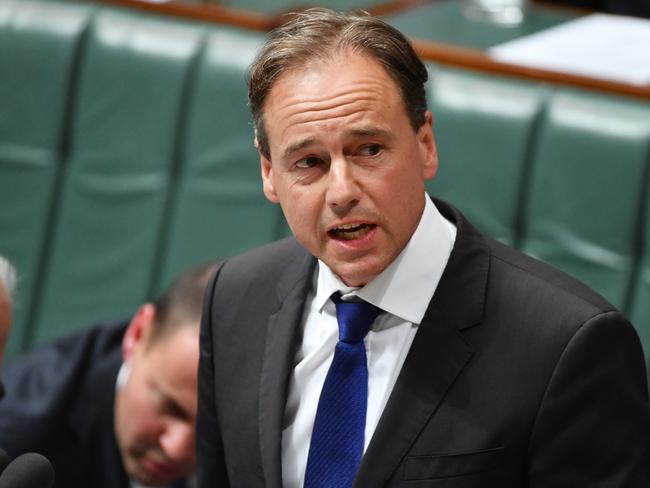
“The measures we announced this week will result in faster and easier access, while still maintaining safeguards for individual and community protection.”
Mr Hunt said the issue of medicinal cannabis would be raised at the next Council of Australian Governments meeting.
“I congratulate those states that have taken steps and encourage others to follow the Turnbull Government’s lead and make the process of accessing medicinal cannabis as easy as possible, while still maintaining safety.”
“Access to medicinal cannabis will certainly be discussed when I meet with my state counterparts at COAG.”
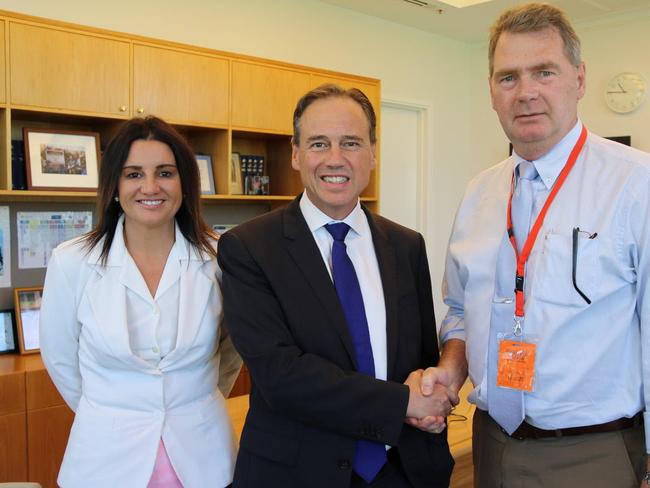
Australian Medical Association president Dr Michael Gannon said many doctors were rightly sceptical about medicinal cannabis and that it was far from a magic cure-all.
“I’m not going to greet this with the level of enthusiasm that many others will,” he said.
“It’s so important that we stick to the scientific evidence about exactly where cannabis may and may not be useful. It is a long way from being a panacea for the whole range of conditions it’s claimed to be useful for, but in those circumstances where a doctor makes a judgment that it should be prescribed, it’s entirely appropriate that patients or their families can access a legal supply, rather than resorting to the black market.”

QUEENSLAND FIRST STATE TO ENABLE ACCESS
Queensland Health Minister Cameron Dick said the Palaszczuk government was the first in Australia to enable legal access to medicinal cannabis.
“The supply of medicinal cannabis is the Commonwealth Government’s responsibility and we welcome their announcement last week, which should ensure patients can access safe cannabis products much sooner,” Mr Dick said.
“Currently, Queensland patients have to wait up to four months for products to arrive in Australia as there is currently no legal product available domestically.
“For example, Queensland Health took just one week to approve a product for a palliative care patient in November, however that patient is still waiting to receive the imported product.
“While this move by the Commonwealth goes some way toward addressing supply issues, affordability of the product still remains an issue for many patients.
“It is important that the cost issue be addressed, which is the responsibility of the Commonwealth under programs like the Pharmaceutical Benefits Scheme (PBS).
“Last week, I wrote to Health Minister Greg Hunt asking the Commonwealth to accelerate steps to make sure medicinal cannabis products are affordable, by placing them on the PBS. ”
Originally published as Let’s talk about weed: How medicinal cannabis might help


